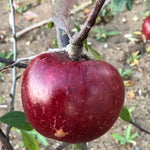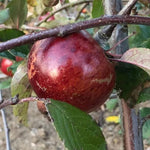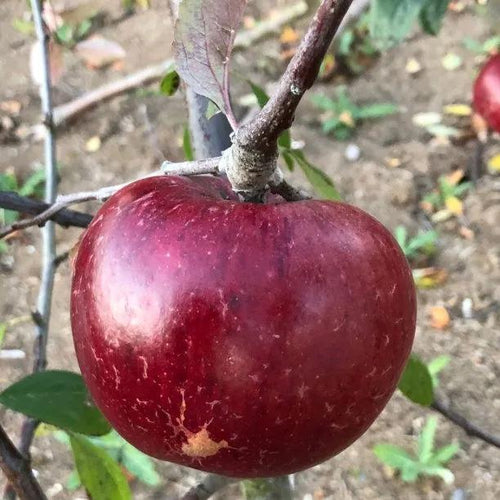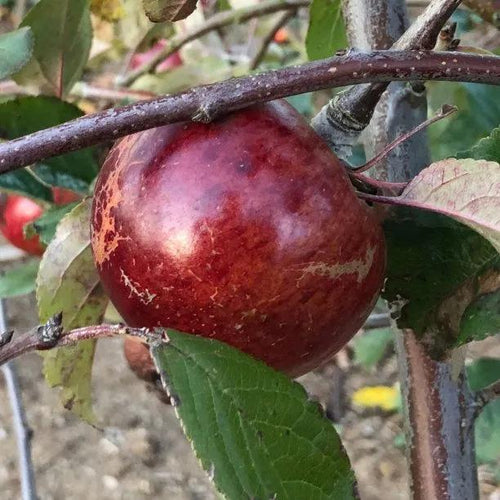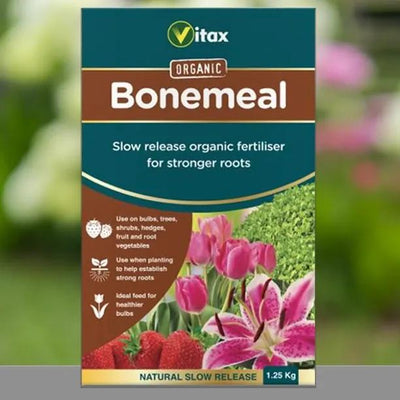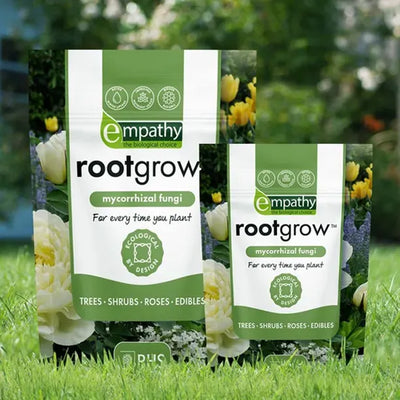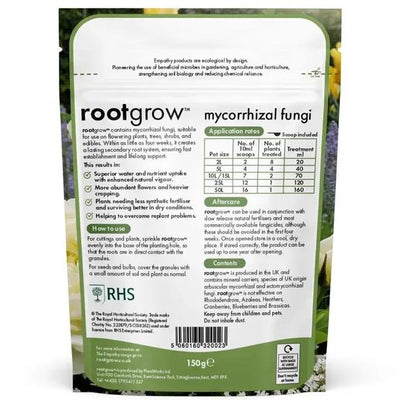Black Dabinett Cider Apple Trees
Black Dabinett apple trees produce a mid to late season, vintage quality cider apple. The fruit's larger than your average cider apple, and they're a real sight in late-October and into November against nearly leafless wood. They have wonderful, deep but shiny purple skin sometimes touched with green. The tree itself is fairly vigorous and is a regular heavy cropper. The Dabinetts are a mainstay of cider farmers, with a mellow bittersweet flavour of vintage quality, meaning that it can be used to make full-bodied cider without needing to be mixed with other apples.
The apples ripen during November.
All of our Black Dabinett trees are grown on MM106 rootstocks.
We especially recommend Black Dabinett if you can only have one cider apple tree.
Browse all of our other apple tree varieties.
Features
- Use: Cider. Vintage quality. Medium bittersweet flavour.
- Spur Bearer: suitable for cordons & training on wires.
- Tree's growth habit: Average vigour. Upright / Compact / Spreading form.
-
Harvest: During November.
- Cider apples should be pressed for their juice as quickly as possible.
Pollination Partners for Black Dabinett:
Your trees are self-fertile and are in pollination Group D which means that they'll cross-pollinate with other apple trees in pollination Groups C, D and E.
See our Guide to Apple Tree Pollination for a full list of partners & more tips about pollination.
Have a look at our quick guide if you are new to brewing cider at home.
Disease notes:
Disease resistance: Scab, Brown Rot.
History & Parentage:
It hails from Kingsbury Episcopi in Somerset. The original Dabinett tree was found by chance, growing in a hedge, at the start of the 20th century by William Dabinett; this variety is superior in size and flavour. The trees are known locally as Tommy Rodfords.

 Secure, One-Tap Checkout
Secure, One-Tap Checkout
 Hand Picked, Delivered to Your Door!
Hand Picked, Delivered to Your Door! 1 Year Bareroot Guarantee
1 Year Bareroot Guarantee